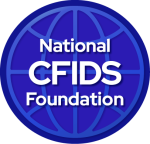Elevated Neuroactive Progesterone Metabolites in Women with Chronic Fatigue Syndrome
Elevated Neuroactive Progesterone Metabolites in Women with Chronic Fatigue Syndrome
Beverley E. Pearson Murphy, MD, PhD, a.-Missagh Ghadirian, MD, MSc, Cyndie M. Allison, MSc, and Craig Watts, MD
J Steroid Biochem Molec Biol 74:137-142, 2000
Abstract
Background: Although some ring A-reduced progesterone metabolites are known to be powerful anesthetics at high doses, and to have anxiolytic or soporific effects at lower doses, their physiological relevance remains unknown.
Methods: We measure five of these steroids, along with progesterone and its precursor pregnenolone, in 20 women with chronic fatigue syndrome (CFS) and in 13 age-matched control women.
Findings: Mean values for all five of the metabolites, but not for progesterone or pregnenolone, were significantly increased (p=0.029 to 0.0003) in the CFS group (n=20) compared with controls (n=13). When mildly depressed patients (n=10) were compared to moderately to severely depressed patients (n=10), the mean values in the mildly depressed patients tended to be higher than those in the moderately to severely depressed patients, reaching significance for progesterone (p=0.018). However, when the moderately to severely depressed group was compared with controls, only the level of 3b,5a-THP was elevated (p=0.024). On the other hand, levels in the mildly depressed group were higher for 5a-DHP (p=0.037), 3b,5a-THP (p=0.004) and progesterone (p=0.032) and of borderline significance (p£ 0.1) for 5b-DHP, 3b,5b-THP and 3a,5a-THP.
Interpretation: These results suggest that increases in neuroactive progesterone metabolites, particularly 3b,5a-THP, are associated with chronic fatigue syndrome and that this syndrome is not attributable merely to depression.
The National CFIDS Foundation * 103 Aletha Rd, Needham Ma 02492 * (781) 449-3535 Fax (781) 449-8606

